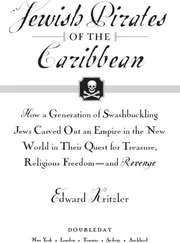The talent for music was inherited in their family for many generations. Stempenyu’s father, Berrel Bass, played the double-bass, as his nickname indicated. Berrel’s father, Shmulik, played the trumpet; and his father, Phillip, played on the harpsichord; and Phillip’s father was Ephraim Fiddler, because of his talent for playing the fiddle. In short, Stempenyu was descended from innumerable generations of musicians. Nor was he ashamed of the fact that they all had lived by their playing. He was not at all like the average Jewish workman who thinks it is fashionable to be ashamed of the work in his hands. And, it was true also that Stempenyu had nothing to be ashamed of. It was no trifling matter to make the name he had made for himself in the district of Tasapevka — in the whole world, almost. It was no laughing matter for a man to bear the name of Stempenyu.
Amongst the things which people of the district found to make a boast of was that they had heard Belser the Chasan sing, Gadig the jester preach or lecture, and Stempenyu play. From that you can gather that Stempenyu was not an ordinary, everyday musician — a mere nobody. He was the musician of his day. And, it stands to reason that he could not have become so famous amongst the great ones of the district unless he had in him something exceptional — something which lifted him high above the other players. From time immemorial, we Jews have loved music, and have understood what it really is. Even our worst enemies could not deny this. But, on the other hand, few of us have had an opportunity to hear good music. What are we, that we should seek to amuse ourselves, and to pass the time pleasantly in singing and dancing? Surely our lives are not empty or free from care? We have enough anxieties to keep us from thinking of what is pleasant or enjoyable. But, say what you will, we are excellent judges of good music — of singing as well as playing. Whenever a Cantor makes his appearance in our midst, we rush off to buy to tickets to hear him, let them cost us a meal, even. And, when a good musician plays at a wedding-feast, we are delighted. Whilst, to hear an orchestra playing any piece, by preference a sad one, we feel that it would be well worth walking all day and all night to reach the village to hear it. There is nothing in the world to compare with such a pleasure. And, when it does come to us once in a while, we do not fail to appreciate it. No sooner has the orchestra struck the first note than a profound silence falls upon us all. We sit still and listen; and, the music is always sad, pathetic, melancholy, or at least, in a minor key. The fiddle starts weeping, and loses itself in mournful cadences. And, the other instruments join in, sighing, weeping, sobbing aloud, as one might say. A feeling as of depression comes over us all. It is very nice, the music; but, it makes a man feel depressed. Somehow, every single one of us is plunged into the profoundest melancholy. We cast down our heads, and, our fingers occupy themselves with the table-cloth, or we busy ourselves in making little pyramids from the crumbs of bread which are on the table before us. Our thoughts are deep, and our reflections are bitter; for, each one of us is reminded of his or her personal troubles. Who does not know that no individual in our nation need go about laughing for want of something to feel sad about?
And, it always comes about that we combine the pathos of the music with the pathetic notes that come into our lives every hour of the day. Every separate tone is echoed and re-echoed in our souls. The fiddle especially seems to resound within us again, and yet again. The heart itself is like a fiddle; the Jewish heart, I mean, of course. The tightly drawn strings want but the lightest touch, and they send forth a variety of sounds — deeply pathetic, wailing, weeping sounds.
A man of talent — a Stempenyu — wrings the very souls out of the Jews.
Oh, what a man Stempenyu was! His talent was without beginning and without end. He would snatch up the fiddle, and drawing the bow across it in the most careless fashion, he would succeed in making it speak at once. It needed but a single movement of his elbow, and the little fiddle was speaking to us all. And, how it spoke! In the most unmistakable accents! Really, with words that we all understood, in the plainest fashion, as if it had a tongue, and as if it were a real living, human being! It would moan, and wail, and weep over its sad fortune, as if it were a Jew. And, its cry was shrill and heartrending. It was as if every note found its way upwards from out the deepest depths of the soul.
Stempenyu would throw his head to one side, whilst his long sweeping locks fell wildly about his shoulders and the nape of this neck. And, his black eyes were wide open, staring vacantly out in front of him, seeing nothing for all the fire that burned in them. His face became deathly pale. It took but a few seconds for Stempenyu to become a different man. He was not the same Stempenyu. He was the incarnation of music itself. One could only see in him a hand that flew up and down, up and down. One heard all sorts of sounds; and, every melody in existence was poured forth from the fiddle like a living stream — a fountain. And, always, everything was lonely and sad — so sad that one’s heart was sure to contract within one’s body with inexpressible emotion. One’s very soul was drawn out of one’s body, and, weakness, faintness, almost overcame one — exhaustion.
The people began to feel as if they were dying, dying, going out with a flicker — and, no more.
That is how the Jews felt when Stempenyu was playing his little fiddle for them. They were rendered powerless to do anything but sigh, and weep, and moan.
And, Stempenyu — what of him? He did not seem to be in the least conscious of where he was, and what he was doing. He did not seem to have the faintest notion of the tortures which his playing brought upon the highly wrought nerves of his audience. He simply went on playing and playing, drawing out the deep, deep notes that are at once so beautiful and so terrible to listen to. That is all.
Invariably, it was his habit to finish up his playing by drawing the bow across the strings, from beginning to end, as if he would bind into one note, one last effort, the whole of what he had already played. This done, he folded his little fiddle into his heart, and sat down. His eyes were burning like the starts on a frosty night; and, his countenance shone as with a heavenly light.
The people awoke out of their reveries with a sigh — out of their sad but sweet reveries. And, all at once, the room was filled with noise and hubbub. The tension was broken; and, in half a hundred different voices, there arose a chorus of praise and wonderment. Nobody could find the words enough to express his keen delight and his enthusiasm. And, out of the din, one heard the name of Stempenyu repeated again, and yet again.
And the women? Of them there is nothing at all to say, except that it is doubtful if they ever shed so many tears in their lives. It may be that they wept as freely over a personal bereavement, on the Day of Atonement, as they did on hearing Stempenyu play his mournful songs. Even the most pious Jew need not shed so many tears over the destruction of Jerusalem as the women were in the habit of shedding when Stempenyu was playing.
The women generally expressed their praises of the music after a different fashion from that employed by the men. They always found some personal wish through which to express their emotions — some wish which showed that their desires were awakened, their inner feelings brought into play.
“I hope that God will help me to able to engage Stempenyu to play at the wedding-feast of my youngest daughter. That is all I wish for now!”
And, as for the young girls — the mademoiselles! They stood stock still, as if they were rooted to the spot. They could do nothing else but stare with wide-open eyes and mouth at the wonderful Stempenyu and his fiddle. They felt that they must not on any account attempt to move a limb, or even blind an eyelid. There was a dead silence amongst them. Only here and there a little heart beat wildly, romantically — tick, tick, and tick! And, here and there a little sigh, so soft and low as scarcely to be heard, managed to make its escape from a little heaving breast.
Читать дальше












